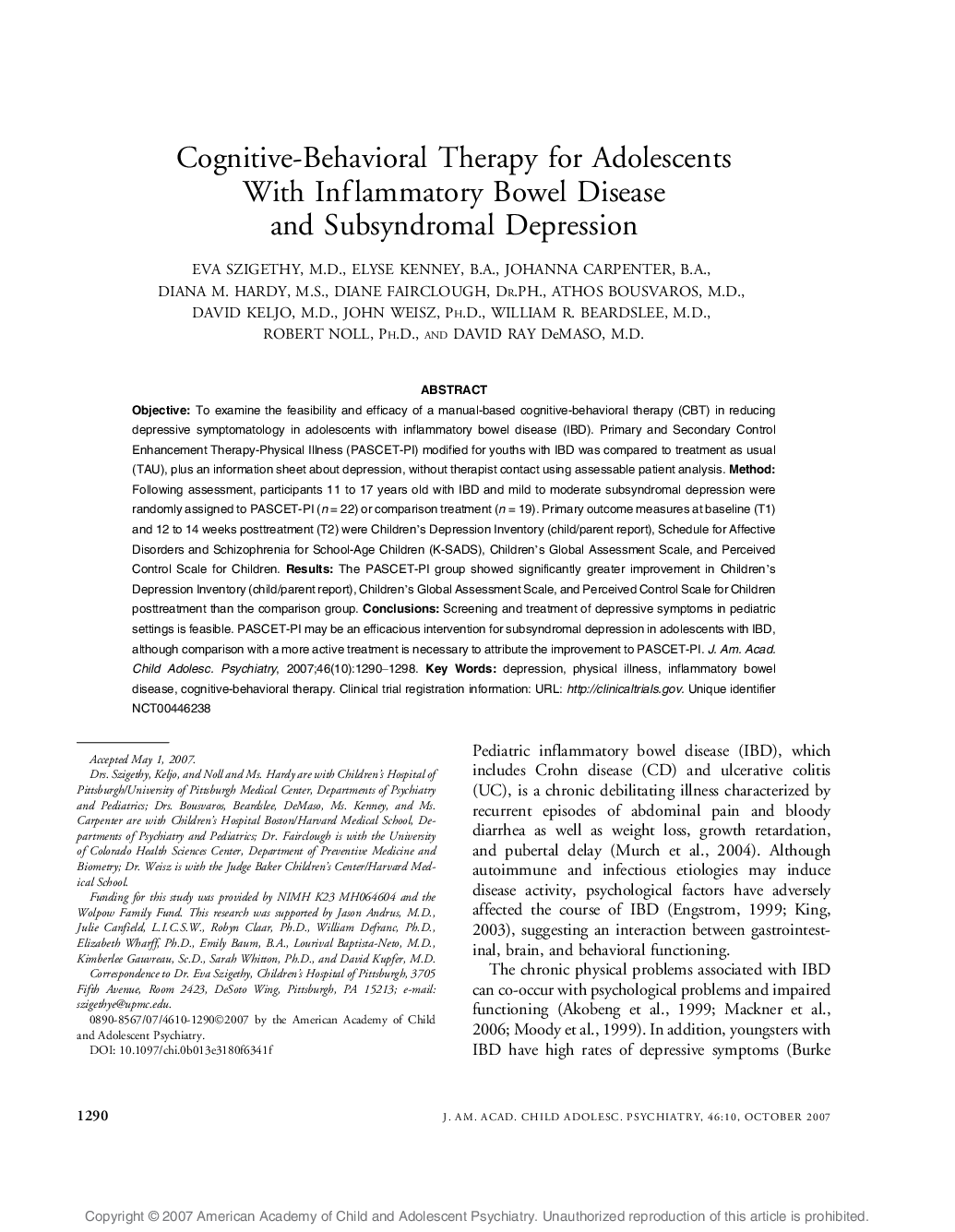| Article ID | Journal | Published Year | Pages | File Type |
|---|---|---|---|---|
| 325705 | Journal of the American Academy of Child & Adolescent Psychiatry | 2007 | 9 Pages |
ABSTRACTObjectiveTo examine the feasibility and efficacy of a manual-based cognitive-behavioral therapy (CBT) in reducing depressive symptomatology in adolescents with inflammatory bowel disease (IBD). Primary and Secondary Control Enhancement Therapy-Physical Illness (PASCET-PI) modified for youths with IBD was compared to treatment as usual (TAU), plus an information sheet about depression, without therapist contact using assessable patient analysis.MethodFollowing assessment, participants 11 to 17 years old with IBD and mild to moderate subsyndromal depression were randomly assigned to PASCET-PI (n = 22) or comparison treatment (n = 19). Primary outcome measures at baseline (T1) and 12 to 14 weeks posttreatment (T2) were Children's Depression Inventory (child/parent report), Schedule for Affective Disorders and Schizophrenia for School-Age Children (K-SADS), Children's Global Assessment Scale, and Perceived Control Scale for Children.ResultsThe PASCET-PI group showed significantly greater improvement in Children's Depression Inventory (child/parent report), Children's Global Assessment Scale, and Perceived Control Scale for Children posttreatment than the comparison group.ConclusionsScreening and treatment of depressive symptoms in pediatric settings is feasible. PASCET-PI may be an efficacious intervention for subsyndromal depression in adolescents with IBD, although comparison with a more active treatment is necessary to attribute the improvement to PASCET-PI. Clinical trial registration information: URL: http://clinicaltrials.gov. Unique identifier: NCT00446238.
